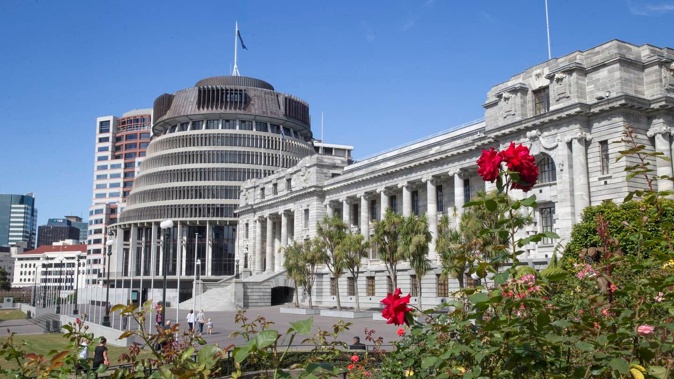
A former senior political figure heading to trial on charges of abusing teen boys in West Auckland and Waikato is battling to keep his name secret for at least another year, until well after the election.
His lawyer Ian Brookie said publication of the man’s name would turn the story into a national political issue during an election year, rather than a court report focusing on the facts of the case.
The alleged offending took place well before his role with the New Zealand political party.
Brookie also argued publication would affect his client’s fair trial rights and jeopardise the man’s ability to support himself in the 14 months before his trial.
The man appeared in court again today after pleading not guilty to charges of indecent assault against two teenage boys in West Auckland and Waikato between 1995 and 1999.
Tuesday’s appearance before Judge Anna Skellern was the second part of a hearing where the man’s lawyer Brookie is fighting for ongoing interim name suppression until the trial, set down for five days starting August 19 next year.
The first part of the hearing was adjourned last month following extensive arguments from Brookie as to why the man should keep his name secret.
Ongoing interim name suppression requires a defendant to demonstrate extreme hardship could be caused by the publication of their name.
Brookie said the threshold was met.
He said publication could affect his potential opportunities for employment.
Brookie argued the political dimension of the case drives the interest from media, resulting in an intense and unfair interest in the case that risks prejudicing his right to a fair trial.
Crown prosecutor Alysha McClintock argued the threshold of extreme hardship was not reached and the man’s name should be published.
He was not as prominent as entertainment figures who were household names and had been granted lengthy periods of interim name suppression, she said.
“He’s a former political figure,” McClintock said.
“He’s not asserted by the Crown to be a household name.”
McClintock said the man had argued potential employers were not contacting him, which he blamed on the allegations.
But no actual potential loss could be tied to publication, she said.
“Recruiters aren’t calling him and he blames this case,” McClintock said.
Brookie argued the facts of the case were unfairly cast in a Herald article on a US company targeting prominent Kiwis offering reputation management in the mistaken belief they were the political figure in question.
But McClintock described that as a “dramatic overstatement”, saying the report was compliant with the Judge’s interim orders for suppression.
The man had also taken issue with a Stuff report describing the alleged victims as “underage boys”, which was also rejected by McClintock.
“But of course, some of the charges relate to complainants aged 12 to 16,” she said.
She also rejected the suggestion that publication would affect his fair trial rights.
There was no suggestion the charges would be separated or there would be further trials to come, McClintock said.
“The mere publication of [the man’s name] does not mean that he can’t get a fair trial.”
In reply, Brookie said a new opportunity for work had arisen for his client, which would be scuppered by the publication of his name.
“Let’s take a step back and consider the nature of the publicity that’s going to run here,” Brookie said.
Judge Skellern reserved her decision, which will be released in writing in the coming days or weeks.
Suppression continues until the release of her decision. Even if the application for ongoing interim suppression is declined, it will continue if Brookie is instructed to lodge an appeal.
The man was bailed after his first appearance when charged in January and has had interim name suppression since then, opposed by the Crown and media.
He was a prominent and senior figure in a New Zealand political party, which cannot be named, but he was not an MP. His exact role in the party is covered by the interim suppression order.
Court documents show the abuse is alleged to have taken place in two towns in West Auckland and Waikato.
Four charges relate to one victim.
They include an alleged indecent assault in 1995, when the boy was between 12 and 16 and another about two years later.
The same boy was allegedly sexually violated around the same time, charges carrying a maximum term of imprisonment of 10 years.
The fifth and final charge relates to another victim, stemming from an alleged indecent assault in West Auckland in 1999.
Today’s hearing was to have been in the Auckland District Court but was moved across the road to a small hearing room in a building in Federal St more commonly used for Environment Court or Lawyers and Conveyancers Tribunal matters.
George Block is an Auckland-based reporter with a focus on police, the courts, prisons and defence. He joined the Herald in 2022 and has previously worked at Stuff in Auckland and the Otago Daily Times in Dunedin.
Take your Radio, Podcasts and Music with you









